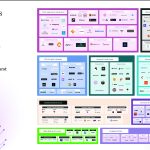
In the private tech sector, where operational strategy often leans on agile teams and lean iterations, Gurhan Kiziloz is building something closer to a high-speed command center. As founder and CEO of Nexus International, a self-financed gaming company that reported $400 million in revenue in 2024, Kiziloz doesn’t follow the typical playbook. Instead of optimization through consensus, Nexus runs on conviction, control, and velocity.
The model is extreme, and intentionally so. Kiziloz makes no secret of his distaste for bureaucracy. “We move fast. Really fast. No approvals, no politics, no waiting,” he’s said. That rhythm has turned Nexus into a case study in centralized decision-making and instinct-driven execution. While many startups simulate speed through agile frameworks, Nexus skips the simulation entirely, going from idea to live product in a matter of days, sometimes hours.
The result is a company that looks more like a personal operating system than a traditional tech firm. One that has, against conventional wisdom, scaled a digital gaming platform to hundreds of millions in revenue without venture capital, private equity, or external board oversight.
The operational logic behind this is reminiscent of early Facebook. In its pre-IPO days, Mark Zuckerberg famously built a culture on the principle of “Move fast and break things.” That ethos powered product velocity at the expense of layered governance. Kiziloz’s own model borrows from the same logic, albeit without Facebook’s institutional cushion.
Where the two diverge is structural. Facebook’s speed eventually required dilution: more executives, product managers, committees. Nexus, by contrast, remains centralized by design. There are no external investors to satisfy, no board votes required to ship a new feature. Strategic decisions reside with one individual, and the organization is built to serve that reality.
But such a structure is not without its risks.
The upside is clear. Nexus’s rapid rise in Brazil, where its platform Megaposta now generates the majority of company revenue, shows how first-mover speed can create defensible ground. Brazil’s gaming regulation landscape changed quickly in 2023–2024, and Nexus was among the first to operationalize a full-scale, licensed platform. The result: $400 million in top-line revenue without dilution.
Yet, the very qualities that drive the company’s momentum, centralized execution, instinctive leadership, minimal internal friction, could become liabilities at scale. As Nexus targets $1.45 billion in revenue by the end of 2025, operational complexity will increase. Regulatory oversight will deepen, especially as the company expands beyond Brazil. What works as a founder-led war room may not work across multiple jurisdictions, languages, and compliance frameworks.
This is the central paradox of speed as strategy: its benefits are front-loaded, while its costs often emerge in lag. Early wins mask operational debt. Speed gets mistaken for durability. And companies that scale too fast without redundancy or structure risk brittleness under stress.
Kiziloz appears aware of this, but remains unapologetic. In interviews, he’s dismissed long-term planning and institutionalized reflection. “I don’t reflect; I just keep moving,” he’s said, describing a mindset where motion itself is the response to risk. It’s a style of leadership that some might find unsustainable, but it has undeniably delivered outsized results so far.
The question is not whether the model works. At $400 million in revenue, it clearly does. The question is what happens next.
As Nexus eyes global expansion and regulatory complexity increases, the operating monolith will be tested. Delegation will be unavoidable. Governance may become a requirement. And speed, paradoxically, may begin to require deceleration, or at least infrastructure.
For now, however, the approach remains intact. Nexus is still structured for speed. It still runs without investor checks or strategic committees. And it is still powered by a founder whose appetite for risk and action mirrors the early Silicon Valley archetype, before that archetype got systematized out of existence.
In the post-VC era, where many founders seek to reclaim autonomy and reject dilution, Nexus may come to represent a new kind of playbook. One rooted not in lean canvases or Gantt charts, but in something older: conviction, instinct, and the refusal to wait.
Whether that model bends or breaks at $1.45 billion is a question Kiziloz seems comfortable leaving unanswered, for now.















